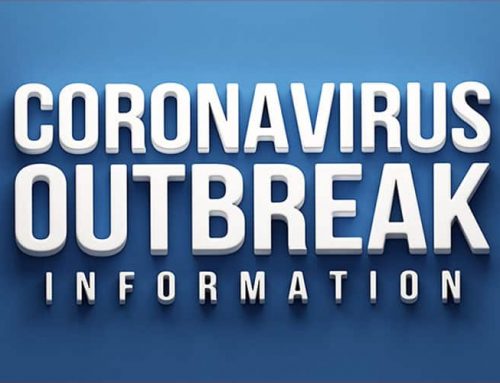Thomas Mohr, CEO of Beam Software, co-presented the Receivables Management Association International Educational Program Series Webinar on “What If COVID Comes Back.” The webinar was a discussion on the receivables industry’s response to COVID-19 and the potential continuation of a remote workforce.
After the outbreak of the coronavirus in the Spring of 2020, there was a significant industry shift to a remote workforce. As much of the United States is still experiencing a severe outbreak of COVID-19, companies should prepare for the possibility of continued remote work. In the webinar, Tom Mohr and his co-presenter, Anita Manghisi of Independent Recovery Resources, shared information and insights learned from the pandemic to help businesses develop and/or strengthen their policies and procedures to ensure business continuity in the event of a continued crisis or even a new emergency.
Measuring Performance
By creating performance standards and analyzing and leveraging metrics after the shift to remote work, many companies quickly and objectively examined performance. Agencies measured and monitored agent productivity and used performance-based metrics to determine the resizing of their collection teams. Removing team members who had been sub-par performers allowed companies to reduce staff while maintaining or even increasing collections performance. As a software company, Beam has always been more focused on results rather than effort. With multiple teams working remotely before COVID-19, our production has not been negatively impacted as a result of the pandemic.
Communication and Connection
Since the outbreak and shift to a virtual workforce, many collections companies have been using instant messaging channels, especially with remote collectors. Chat, screen sharing, and text messaging have helped teams to improve communication, boost productivity, and remain connected while working separately.
When it comes to communication, Beam’s expectation has been to talk in person. With multiple remote team members already in place and additional staff working from home during the pandemic, we implemented a “phone first” policy. We’ve been sending less email and chat messages and simply calling each other more. Since the implementation of this communication policy at the start of the outbreak, our team members have increased the quality and frequency of communication.
The Beam team also increased our utilization of Microsoft Teams to stay connected. Instead of sending an email or a chat message to a colleague, we prefer video chats to maintain the humanness in communicating and to better connect with our colleagues. Sharing information via video not only increases the retention of that information but also reduces misinterpretation that occurs without the visual of body language and facial expressions.
Compliance Check
The pandemic has revealed that the receivables industry is ideal for a virtual environment; however, the creation of new telework standards and expectations through updated human resource policies is extremely important. Information technology procedures must reflect the demands of remote work and address factors that may affect productivity and compliance. As business operations evolve in response to the continued outbreak, companies should have well-defined policies and procedures to address and clarify:
- Confidentiality – protect sensitive data
- Accountability – define user responsibilities on assets (protecting usernames and passwords)
- Access – define rights and privileges to allow or prevent access
- Authentication – establish password policies and login procedures
- Availability – establish hours of resource availability, redundancy and recovery, and maintenance downtime
Looking Back to Plan Ahead
In March 2020, companies were thrust into a remote work environment at a moment’s notice without regard to preparedness. When analyzing the data from the changes the industry has implemented thus far, it’s important to identify what strategies have been successful and what aspects of operation need continued development. Some areas already identified as essential for the successful implementation of remote work include the development of a robust business continuity plan, virtual project management strategies, an emergency communication plan, designation of essential employees and corresponding functions, identification of critical inputs and vendor relationships, and strong employee telework, leave, and compensation policies. Additionally, formal employee review processes need to be developed to mirror telework standards and expectations.
Stay Informed
COVID-19 has presented unique compliance challenges. Agencies, attorneys, debt buyers, and vendors within the receivables industry can stay up to date on changing COVID-19 requirements through trusted sources such as:
- Google Alerts
- RMAI Member Alerts
- ACA International Member Alerts
- Local chambers of commerce, state government websites, the Centers for Disease Control (CDC)
Learn More
The RMAI webinar “What if COVID Comes Back?” was originally presented on July 21, 2020. For more information on this webinar and the RMAI Educational Program Series, please visit rmai.org/education.
About Thomas Mohr
Tom is a 30-year plus veteran of the receivables management industry that cut his teeth in collections by working for one of the nation’s top 10 bank holding companies, Manufacturers & Traders Trust Company. He continued his career by accepting a position with a leading collection agency that was acquired by NCO in the mid-nineties. Since then, his focus has been on the technology side of collections having worked for both Columbia Ultimate and Latitude. Tom has worked in receivables management technology for almost his entire career and his unique perspective offers insights into business operations and helps identify ways to unlock financial potential. Tom leads the Beam Team with the sincerest ambition to build software that solves problems for the ARM industry
About RMAI
Receivables Management Association International (RMAI) is the nonprofit trade association that represents more than 550 companies that purchase or support the purchase of performing and nonperforming receivables on the secondary market. The Receivables Management Certification Program and Code of Ethics set the global standard within the receivables industry due to its rigorous uniform industry standards of best practice which focus on the protection of the consumer. RMAI provides its members with extensive networking, educational, and business development opportunities in asset classes that span numerous industries. The association continually sets the standard in the receivables management industry through its highly effective grassroots advocacy, conferences, committees, task forces, publications, webinars, and breaking news alerts. Founded in 1997 as the Debt Buyers Association, RMAI is headquartered in Sacramento, California.
About Beam Software
Headquartered in Sarasota, FL, Beam Software is a leading provider of collection and portfolio management software for credit grantors, debt buyers, and collection agencies. Beam helps receivables management firms create success by increasing the speed and ease with which they do business. Beam’s system of record meets the unique compliance requirements that collection businesses demand by providing the most reliable and innovative system of record solution for receivables management firms. Beam Software reduces risk, increases compliance, and maximizes efficiency while continually providing best-in-class support for our clients.









